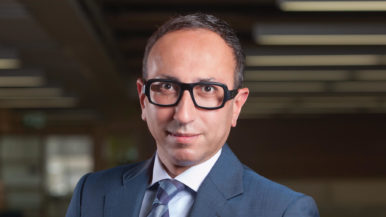Tennis phenom Bianca Andreescu wrote her new book during lockdown, and it’s all about her as a kid

Bianca Andreescu became an overnight sensation after winning the U.S. Open. Now she’s plotting her return, trying to make a difference on and off the court.
In 2019, you came out of nowhere to whup Serena Williams in the final of the U.S. Open. What was it like to become a household name overnight?
At first it was amazing, because it was just about the tennis. It was before all of the attention, the sponsorships, the pressure. Expectations got higher and higher. I had two major injuries just a few months apart that really killed my momentum. And then, just as I was finally ready to come back again, Covid.
You were about to defend your Indian Wells title when the pandemic hit—
I was in California preparing for the tournament, and, suddenly, everyone had to go home. I was just like, come on. I remember placing a bet with one of my friends about how long Covid would last. I said six weeks.
A little optimistic in retrospect?
Like most people, I had no idea. People close to me were getting sick. My 86-year-old grandmother was in the ICU for a month. I decided not to continue the 2020 tennis season for the sake of my mental health. It wasn’t easy to go on social media and see people calling me a one-hit wonder, but I tried to ignore the noise and stay in my lane, focus on my training. My coach got Covid in January of 2021. And then I tested positive in the spring and had to drop out of the Madrid Open.
Talk about a series of unfortunate events.
I was fine and so was my coach, but it took a toll. I only had symptoms for a few days, but for weeks after I could feel it whenever I tried to train. It was also hard being away from home for so long. I was crying every night, I didn’t want to practise, I didn’t feel any joy around competing. There were times when I couldn’t even look at my tennis racquet.
You took a mental health break starting in late 2021. How did you spend that time?
The thing about being on tour is that you can only think about tennis. Taking time away meant I could finally listen to myself, listen to my body. I went to this place in Costa Rica called Blue Spirit, which is like a self-discovery retreat: qigong by the ocean every morning, a lot of meditation and lectures on spirituality.
And I bet nobody wanted to talk about tennis.
Exactly. And what’s funny is that by taking this time, I was able to rediscover my love for tennis. I’ve started training again. Every day I recite my positive affirmations, and I have learned to love the process. I really do feel that tennis is my calling. I can use it as a platform to make change, especially in the area of women’s rights. I’ve been lucky enough to talk to Billie Jean King, who told me that the opportunities to make change will come naturally. That pressure is a privilege.
You wrote a semi-autobiographical children’s book. That seems like a good way to inspire the next gen.
Yes. I worked on the book, Bibi’s Got Game, during lockdown in Toronto, which was great because it gave me something to do. I wanted to share everything that I experienced, all of the challenges I faced.
In the book, you talk about how you were bullied by classmates.
There were kids who made fun of me because I brought my racquet to school or had to leave early. It was hard on me, but my mom told me not to give a shit about what other people think. And I gradually gained that mentality.
As a kid, did that ever make you want to quit?
For sure, and we know from statistics that young girls abandon sport at higher rates than boys. I hope my story can help to change that. And then we had to throw Coco in there.
Coco is your mini poodle who achieved internet celebrity status during your 2019 victory run.
Coco is a huge part of my success. We got her, and pretty soon after, my career skyrocketed. My mom is also in the book. She is my biggest inspiration and the one who taught me about the power of visualization. I wrote myself a cheque for the U.S. Open prize money years before I actually won.
You won $8.6 million in the 2019 season. How has that changed your life? Any big splurges?
When I’m in Toronto, I still stay with my parents, but I bought a home in Monaco. A lot of tennis players have places there, so I’ve always got someone to train with.
You mentioned the power of visualization. What are you seeing for the 2022 season?
I want to stay healthy and enjoy myself. And it would be nice to crack the top 10.
This interview has been edited for length and clarity.





